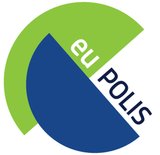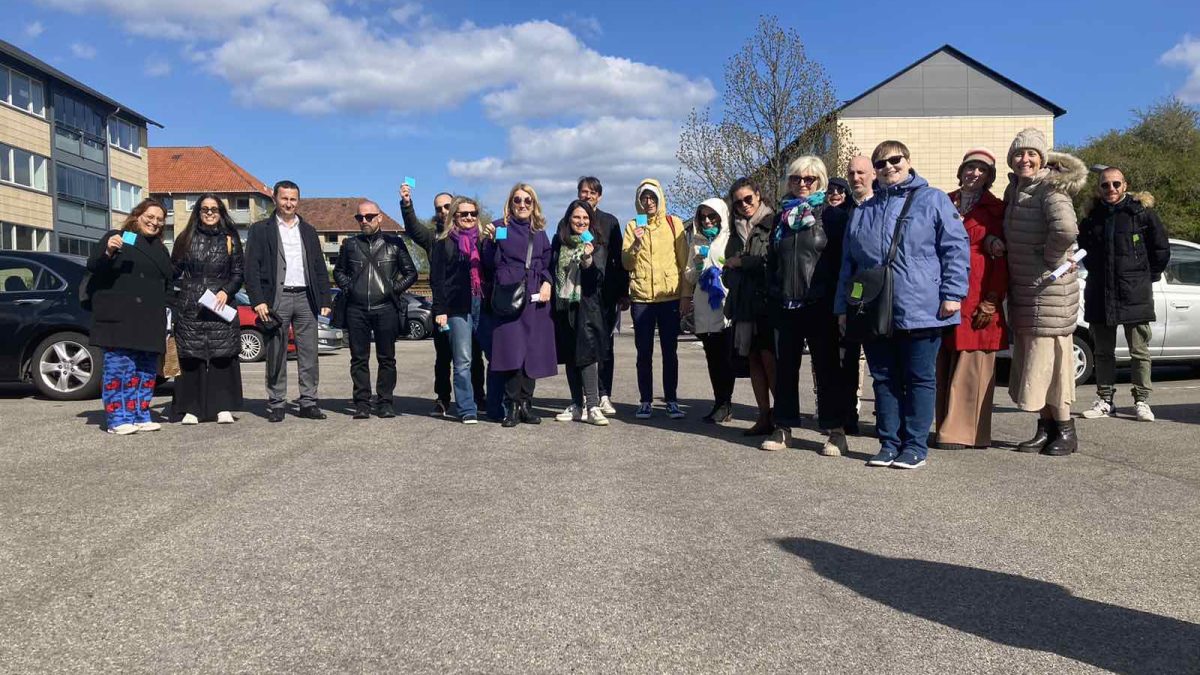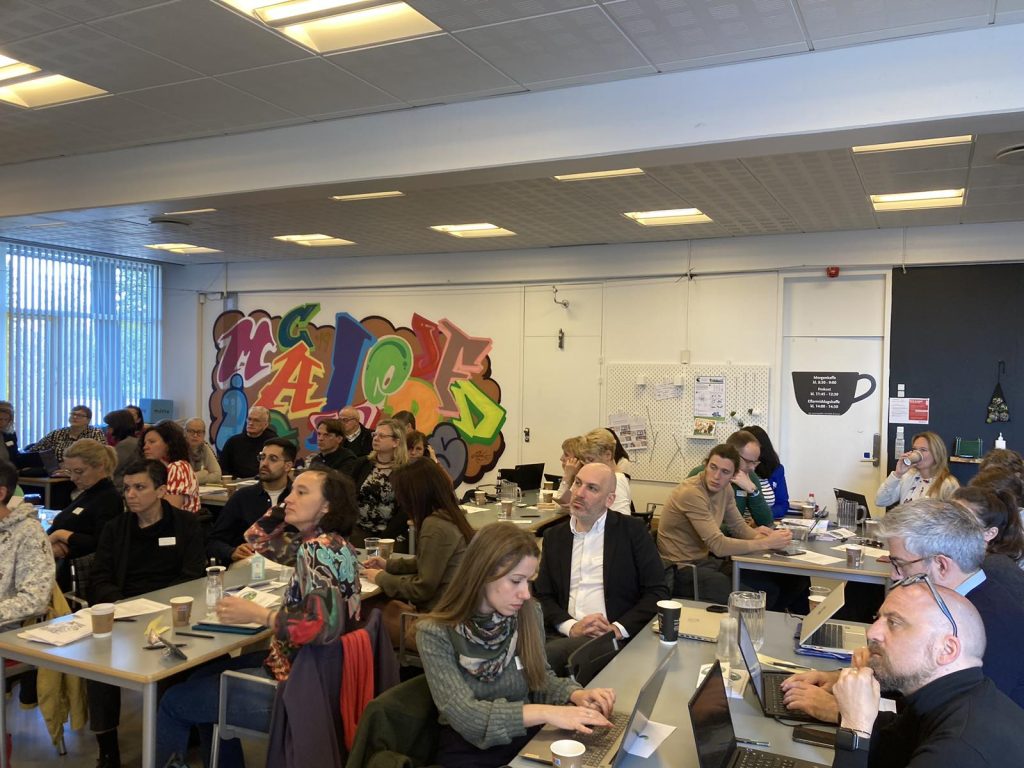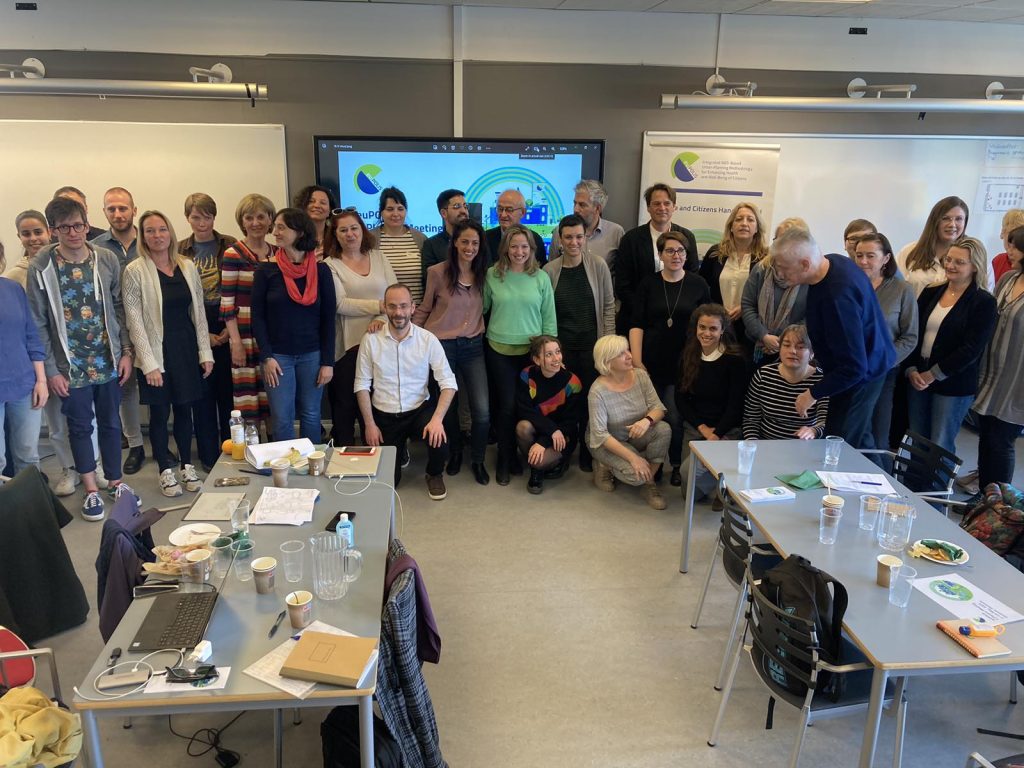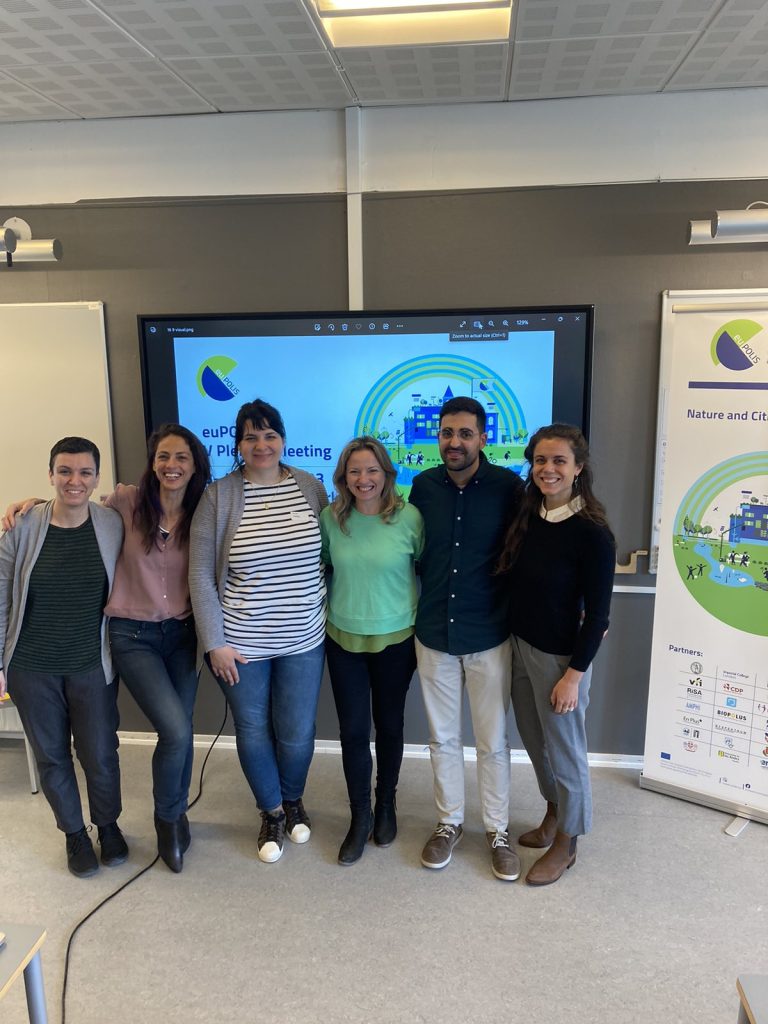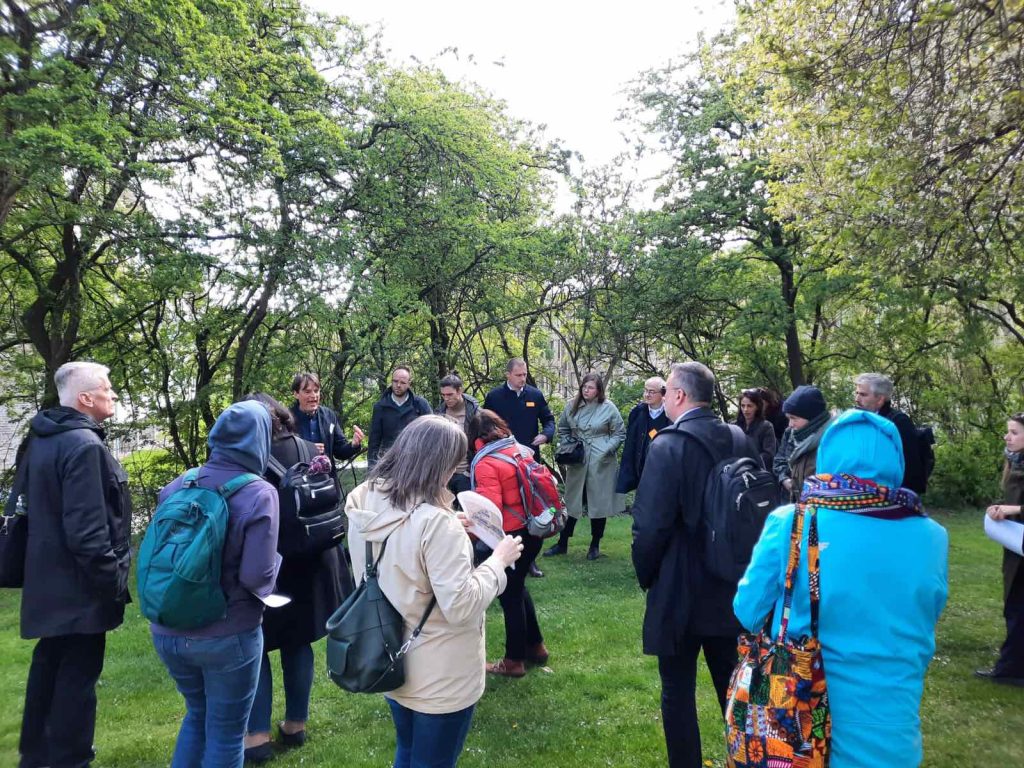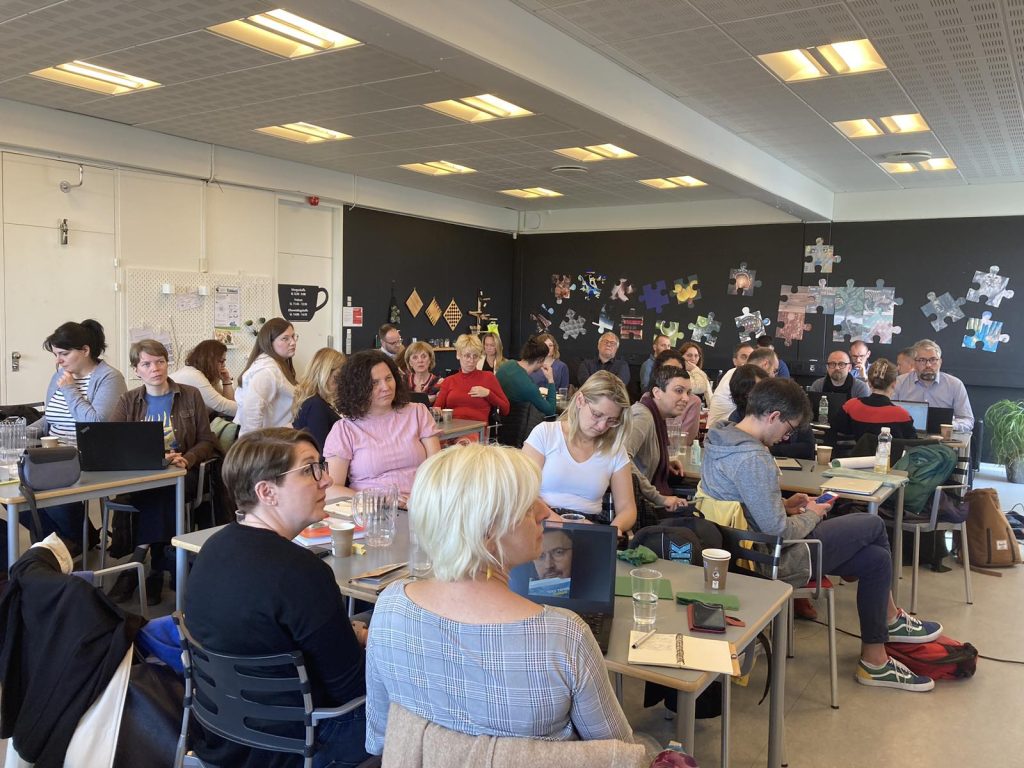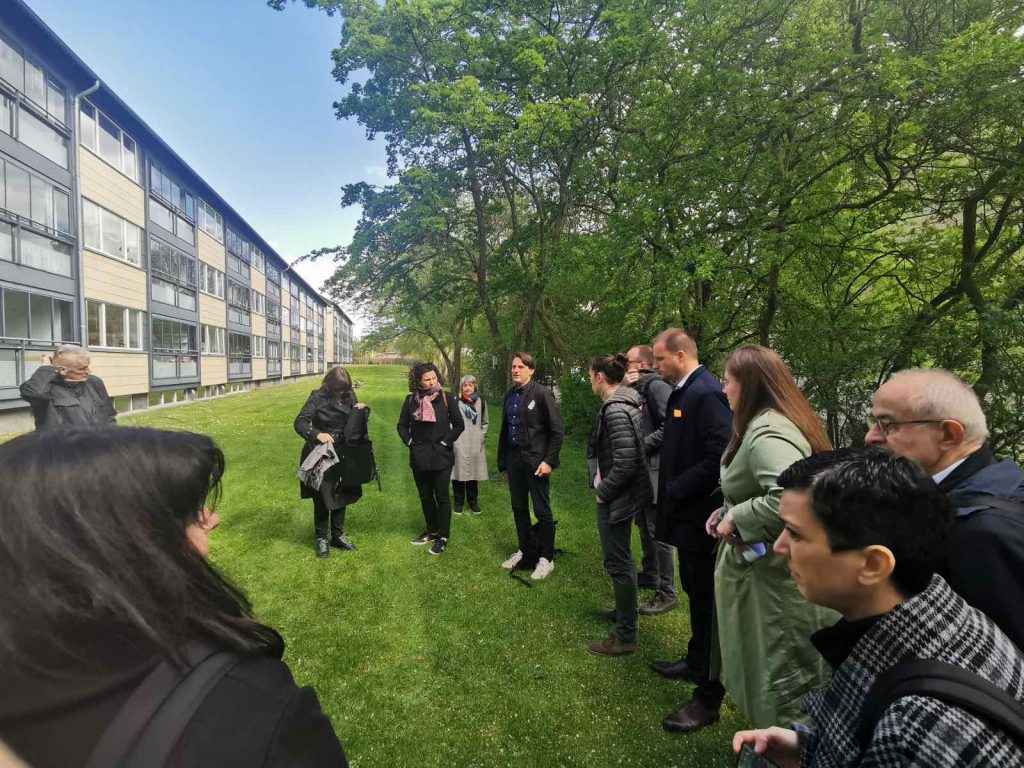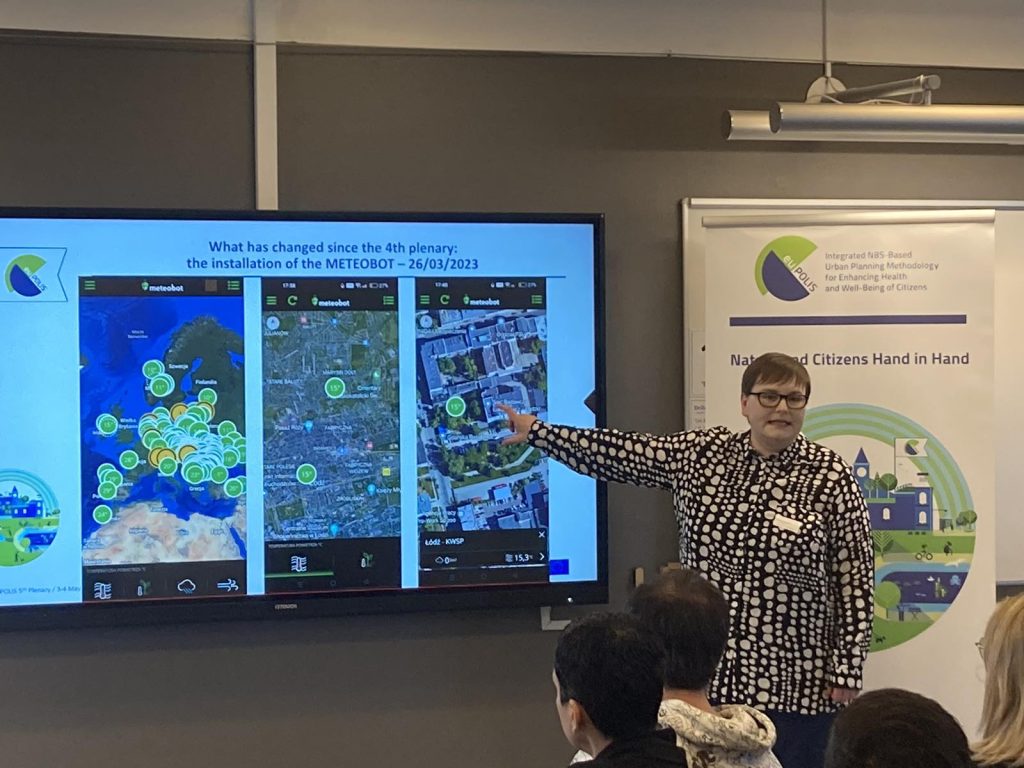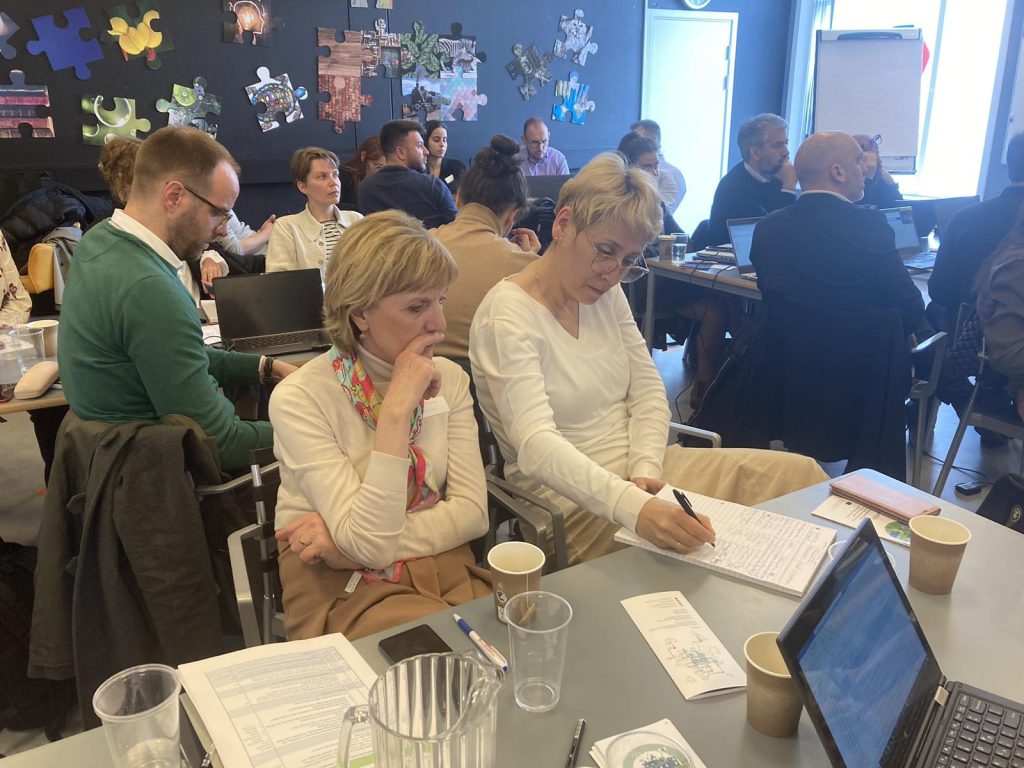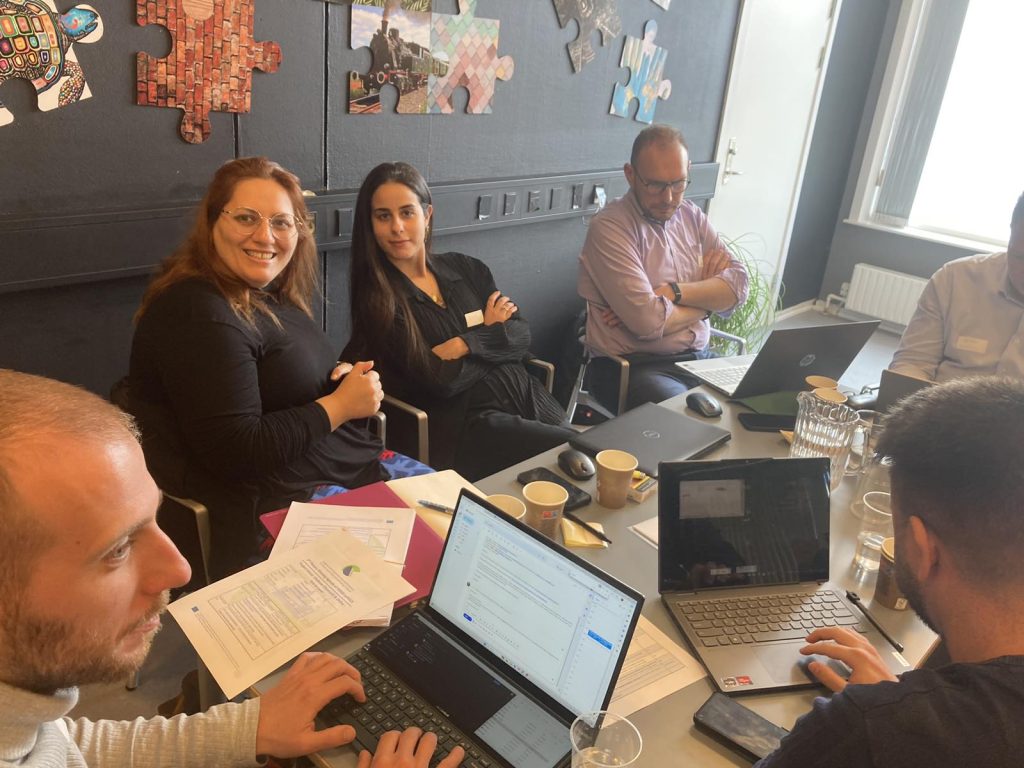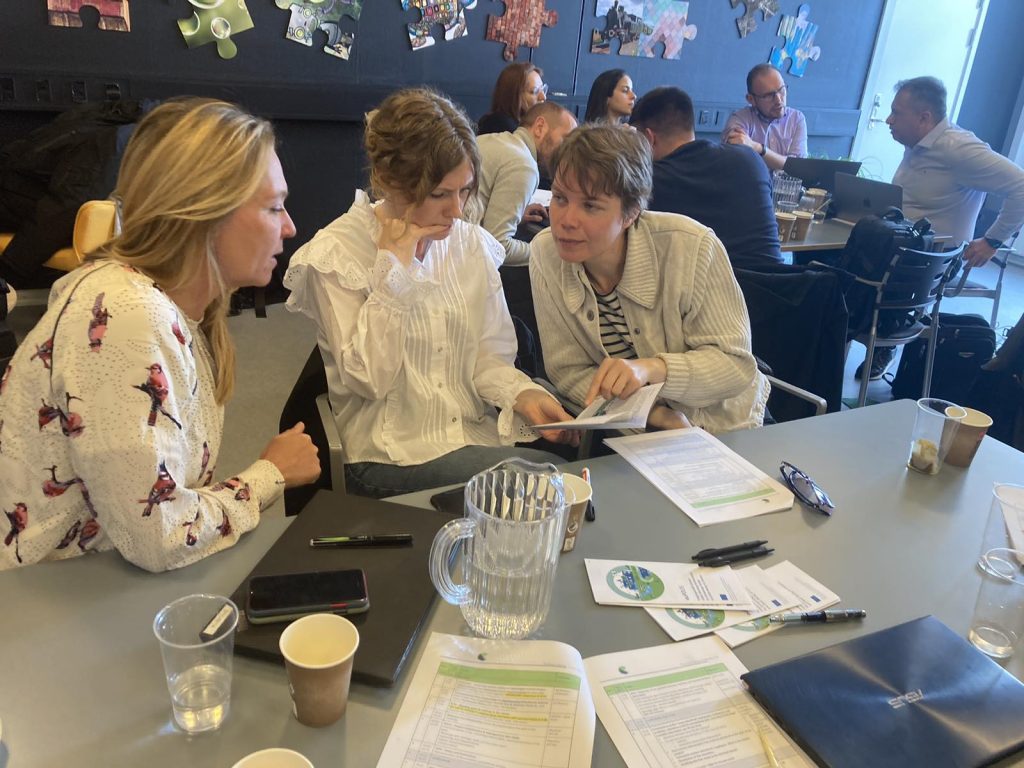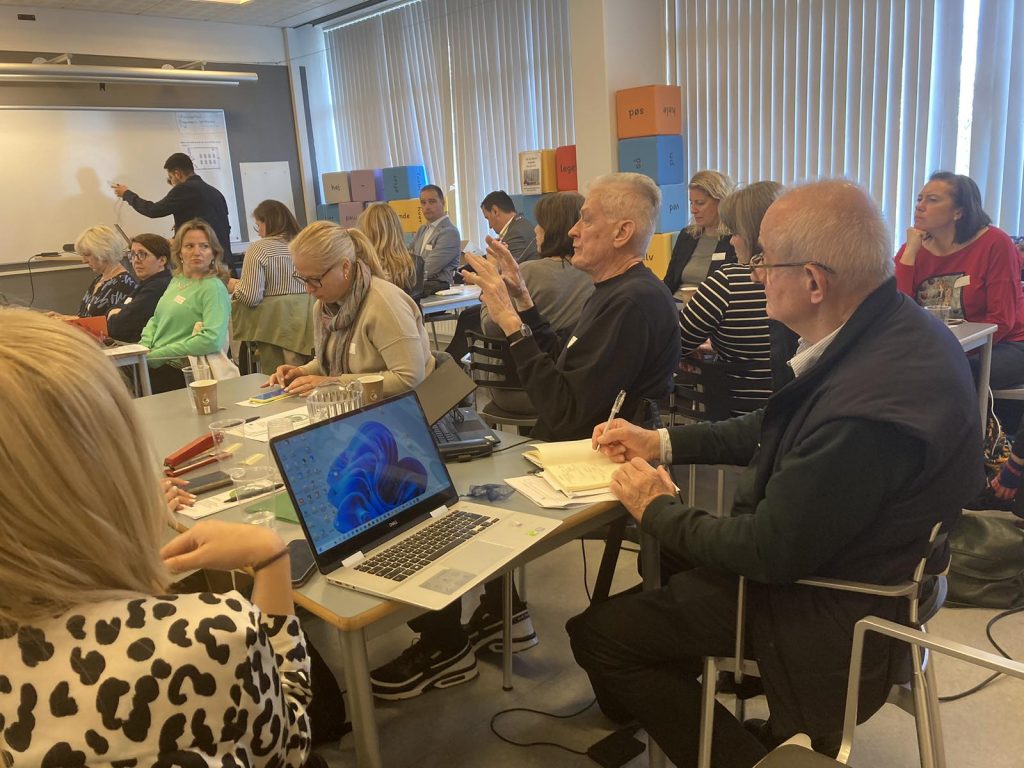Plenary Meeting + Expert Training by The euPOLIS Team
The fifth plenary meeting of the euPOLIS project consortium took place in early May in Gladsaxe, near Copenhagen. All partners’ representatives gathered to evaluate the so far road taken, mark the milestones, and debate on future steps on all project’s aspects: technological, social, economic, cultural, political…
euPOLIS aims to implement nature-based solutions in public spaces. Then, the consortium will deploy advanced technologies to collect and compare data, before and after the implementations take place. The main goal is to prove the effectiveness of these solutions on people’s health and well-being.
Such a feat will be achieved thanks to the volunteers in each pilot city. Participants will wear a smart band that collects their health data (heart rate, blood pressure…). Then, these data will be evaluated against other data, collected with other tools (e.g. temperature, humidity, pollution..). In the end, by statistical analysis, we will be able to compare the rate of change and calculate a set of performance indicators.
There’s a general agreement among stakeholders, including citizens, city decision-makers, and professionals, that urban planning should include innovative, nature-inspired solutions for healthy, sustainable, and happy cities. The euPOLIS experts faced significant challenges in implementing the technological solutions they’ve already designed and prepared in this field.
Initially, it was assumed that the four pilot cities, i.e. Gladsaxe, Lodz, Belgrade, and Piraeus, shared some basic socio-economic standards that were balanced, matching, and comparable among themselves. Yet, from the beginning of euPOLIS, which coincided with the COVID pandemic, it became clear that there were some deep differences in social pulsing across Europe, which as a community of people and institutions with complementary values and goals did not recognize.
There are significant discrepancies in the mentioned cities, involving how people perceive public spaces, belonging to a community or a broader system, the type of relation and trust that goes both ways top-down and bottom-up from citizens to decision-makers, the role and the credibility of experts, and so on.
Plus, the entire COVID situation, and the following war in Ukraine, only deepened the existing differences, creating a gap among stakeholders and cities that demands effort and dedication from all social actors on local, state, and European levels.
There are multiple outcomes and insights related to the actions and activities in euPOLIS that emerged during discussions with the volunteers. Some are presented below:
- Citizens remain reluctant to engage with any state or European-connected endeavor, even if they acknowledge that the system has contributed positively to their well-being and that social infrastructures are operational and in place.
- There is a major gap in terms of digital literacy, among different age groups, in all FR cities. In some cases, limited access to gadgets, devices, or networks was observed.
- Citizens are almost equally reluctant to send any anonymized health data through apps, fearing that their privacy is being breached.
- In some cities, the residents do not find any interest in engaging and creating any kind of community with their neighbors thus achieving any kind of citizens’ quorum is nearly impossible in given circumstances.
- Citizens do not have the feeling of ownership over the public spaces, even if these are located in their nearest vicinity.
- There is also a tremendous distrust of citizens towards any decision-making bodies on all levels. Citizens fear that any participation in planning procedures, signatures, or ideas would give legitimacy to the final solutions, constructions, and implementations they did not approve of, do not benefit them, and so on.
The euPOLIS consortium will further put more effort into creating mechanisms and recommendations for all our local partners but also for all other similar projects’ experts on how to overcome these obstacles.
First of all, a deeper and more considerate mapping of all layers of the local circumstances has to be done. With this knowledge, the project experts recognize more easily the gaps between citizens and institutions, find trustees that provide a comfortable and safe atmosphere for participants on both ends of the project, and provide tailor-made educational programs to best answer all questions and doubts in citizens, decision-makers, and other experts.
Aiming further to share our knowledge with everyone who dares to take the NBS-implementing path to make their cities and citizens happier and healthier, on this same occasion, the first euPOLIS Capacity Building expert training took place on the second day of the plenary meeting.
You can watch the full training in the video below, and here’s a little excerpt of its content:
Dr. Stanislava Boskovic, Research Associate at Imperial College London, UK: “Our euPOLIS methodology – setting the scene”
Dr. Anja Ranđelović, Assistant Professor at University of Belgrade, Serbia: “Evaluating NBS – euPOLIS indicator framework”
Sandra Baki, Senior Researcher at National Technical University of Athens, Greece: “Selecting NBS – the euPOLIS NBS preliminary selection tool”
Alfred Figueras, Project Manager/Biologist at Amphi International ApS, Denmark: “Implementing NBS – the euPOLIS case study for Gladsaxe, Denmark”
Authors:
Eftychios Protopapadakis
Aleksandra Malušev
